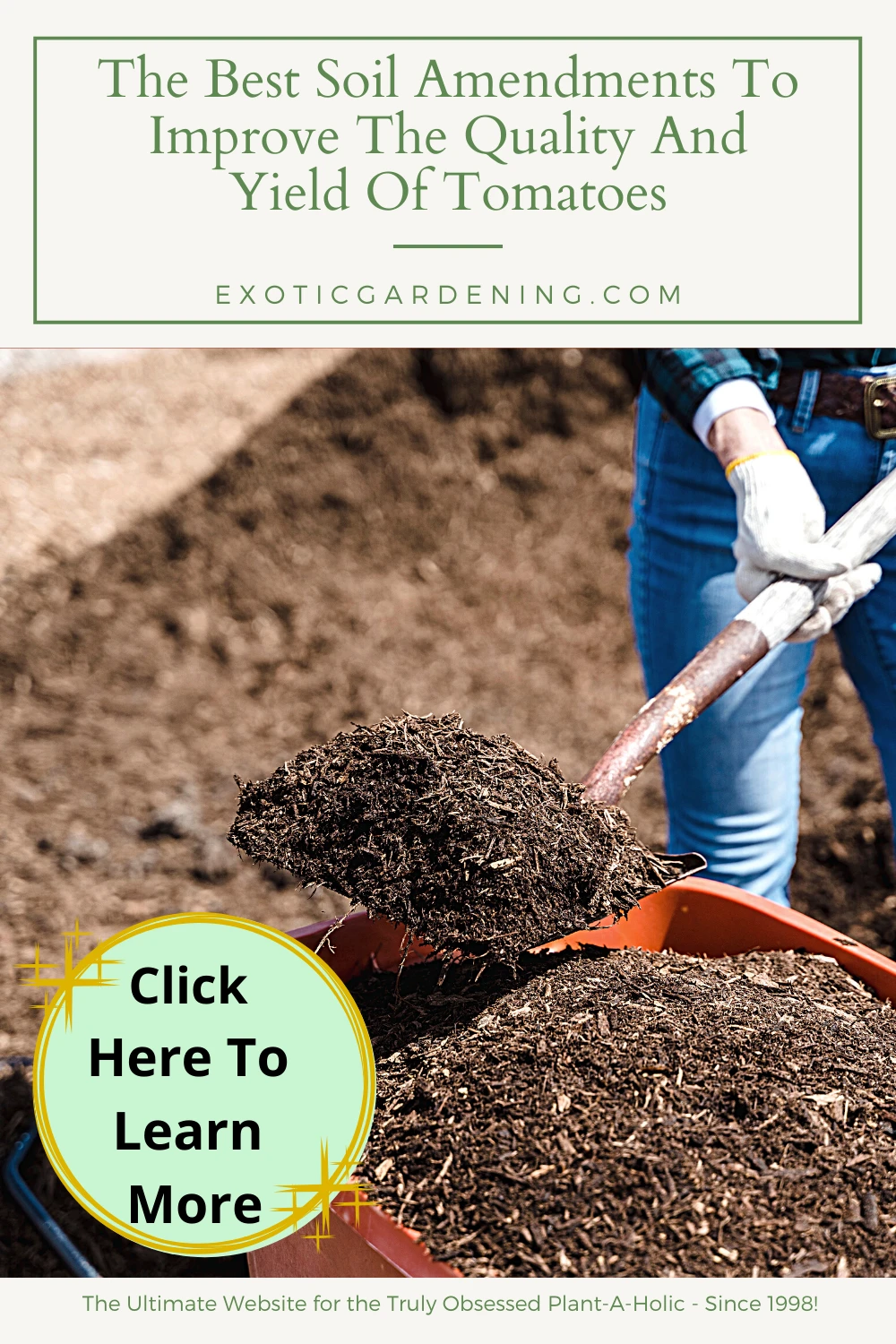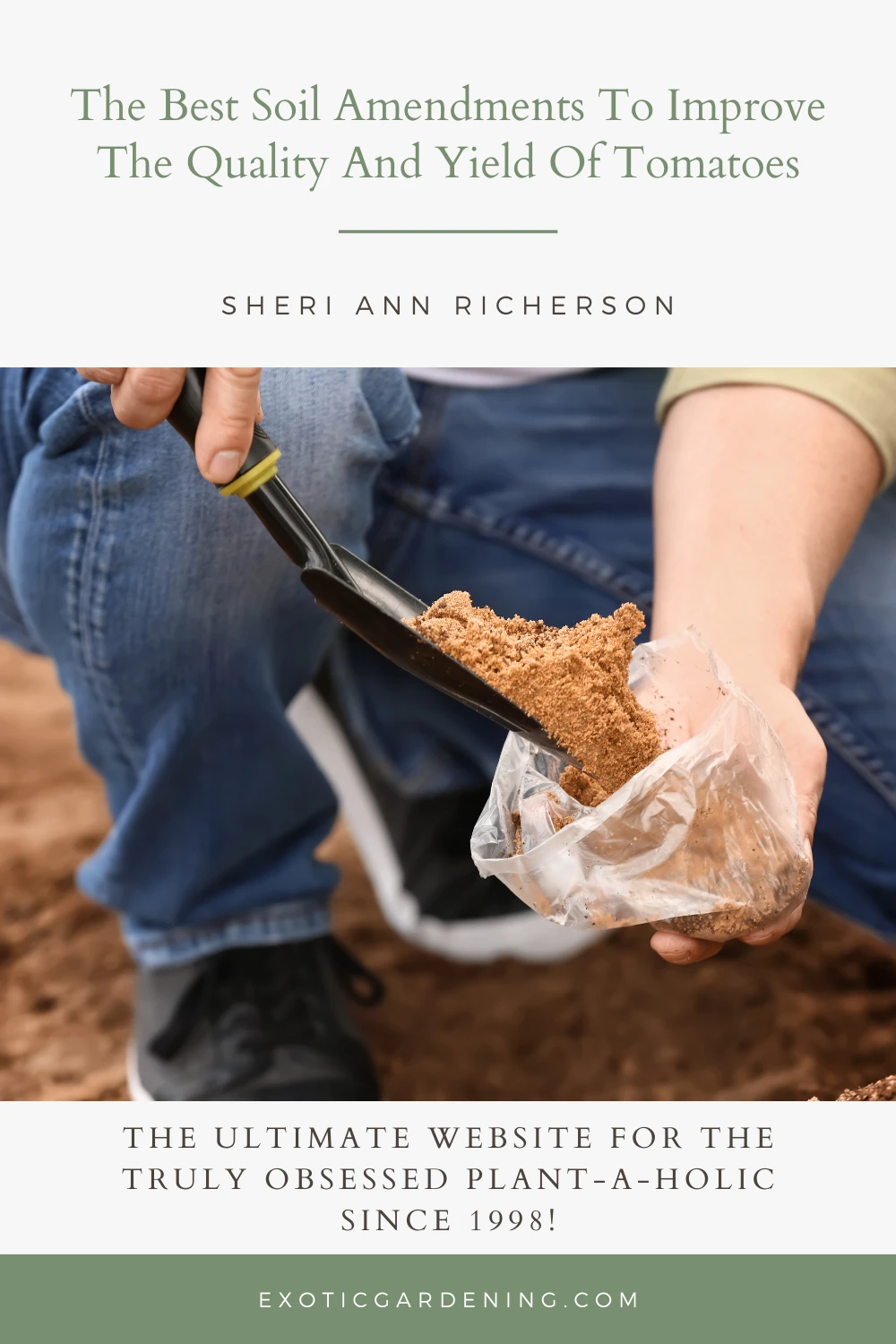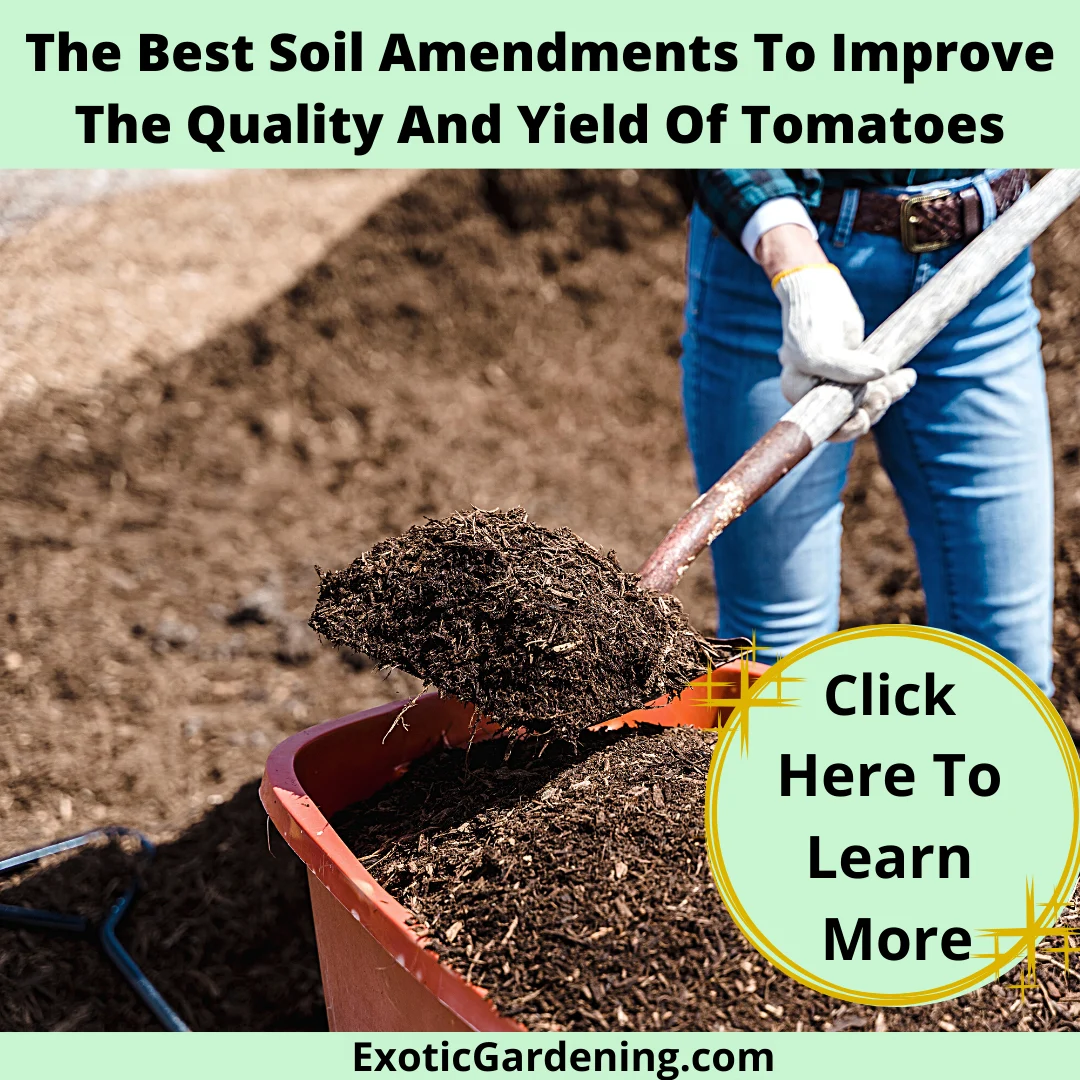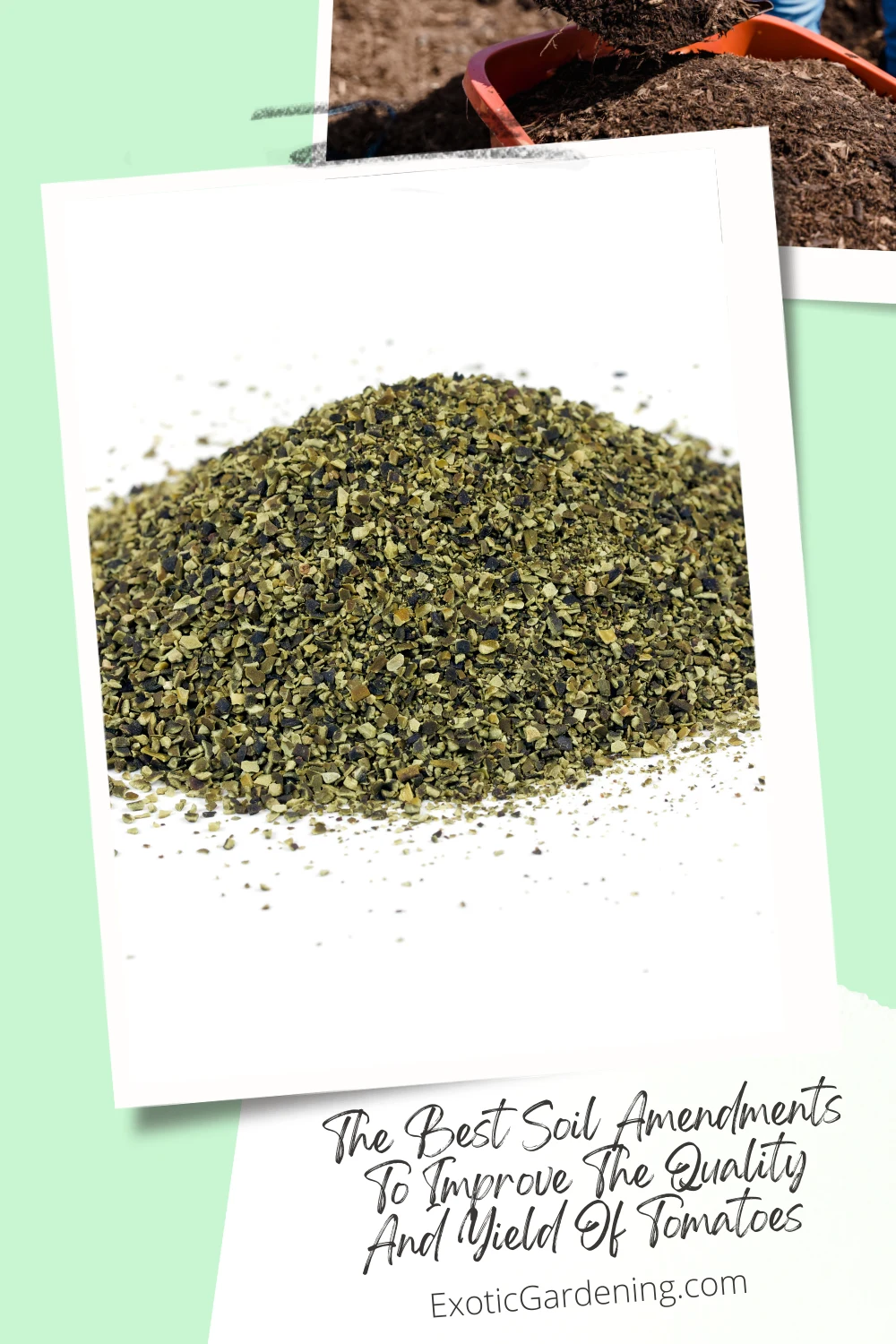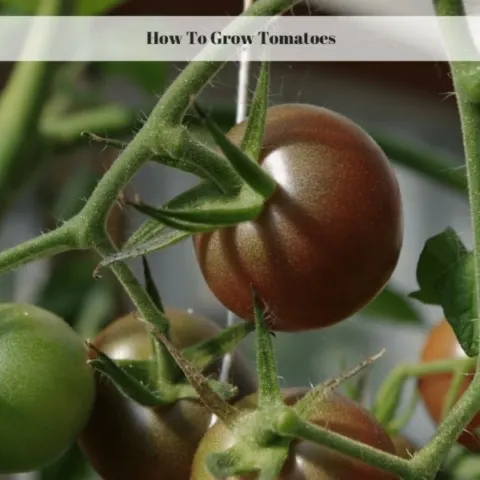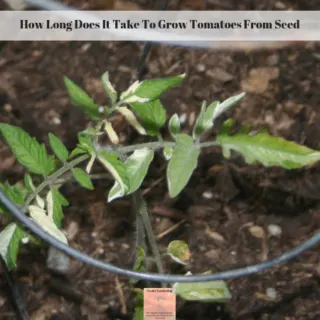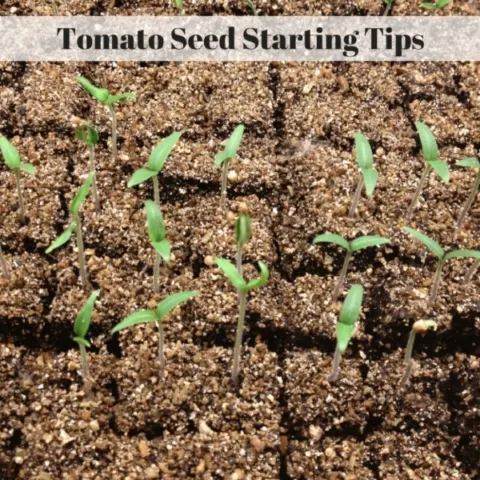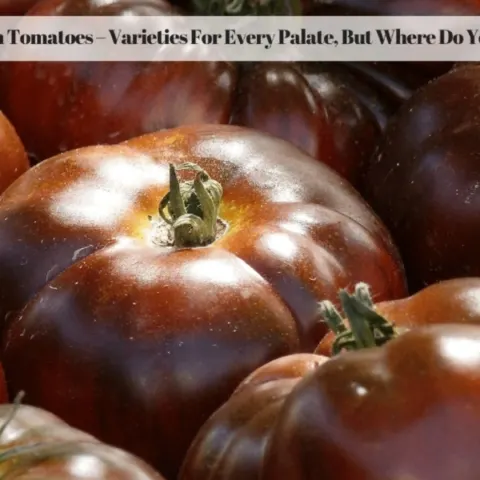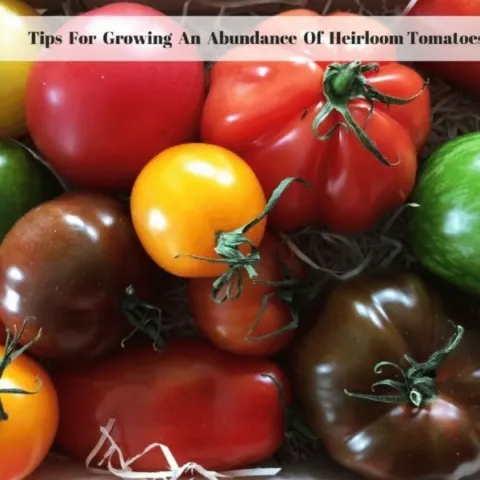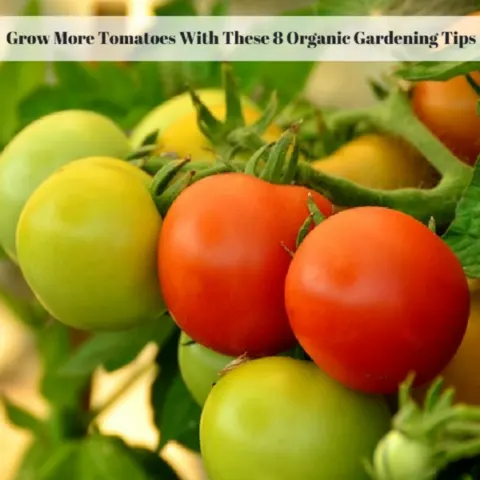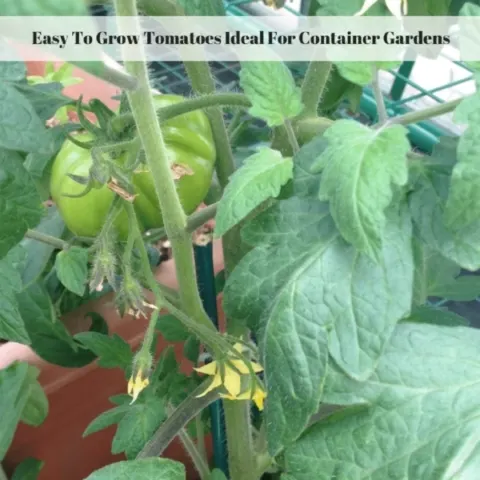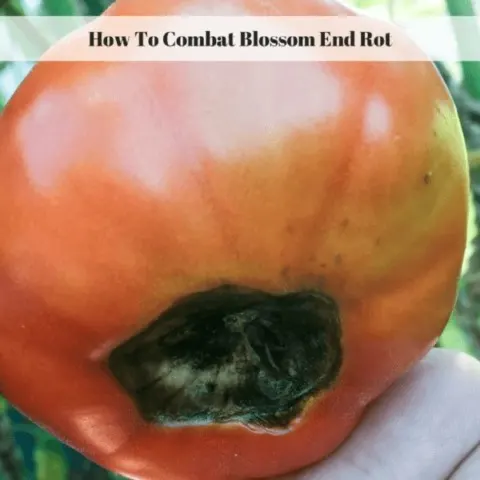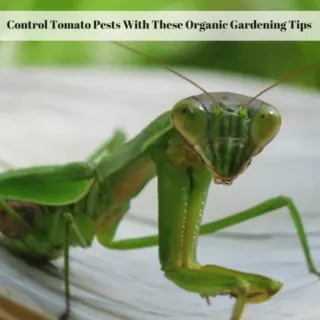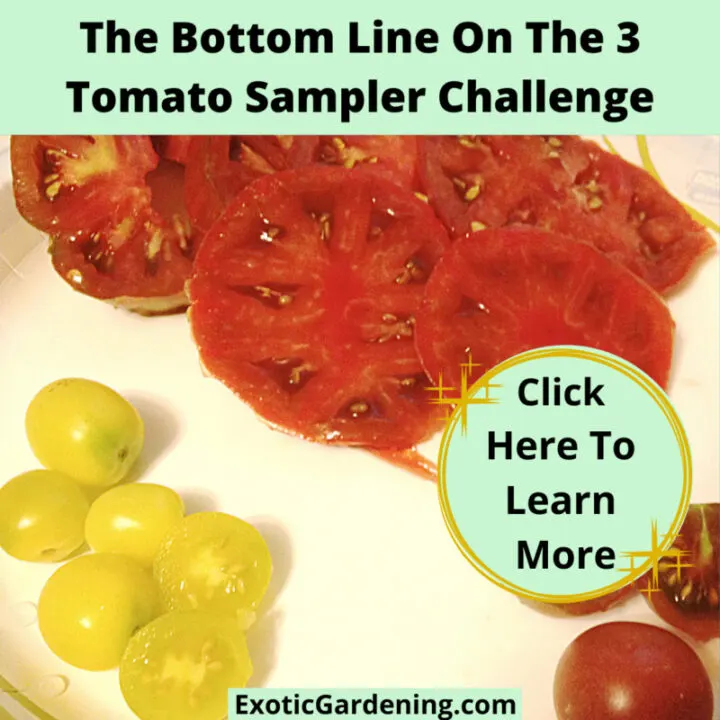If you are going to invest the time, money and energy to grow tomatoes, you will want to achieve the best possible results for your efforts.
When you start researching how to achieve this, you will come across the topic of what the best soil amendments for tomatoes are.
Becoming a successful vegetable gardener means learning how to properly amend your soil so your tomatoes aren't wanting for anything they need.
At first glance, learning how to amend your soil can appear very complicated.
However, once you have some basic facts, you will find out it is not as complicated as it seems.
Why Add Soil Amendments In The First Place?
The primary goal of amending your soil is to improve its composition by adding in the missing nutrients.
Through this process of calculated addition or subtraction, you can create an ideal soil environment where your tomato plants will thrive.
Test Your Soil Before Adding Amendments
To get started, you will want to test your soil in order to establish a baseline starting point.
Home improvement and gardening stores offer a variety of affordable testing kits that will help you determine the exact pH level of your soil.
You can also get a test done at your local extension office, but call ahead first to see what you need to do.
Getting a soil test before you plant your garden is an important step, because if your soil is either too alkaline or too acidic, your plants ability to absorb the proper nutrients from the soil will be inhibited.
When your soil's pH level is out of whack, it won't matter how much fertilizer you add because your plants won't be able to access the nutrients you are trying to provide.
When testing the pH level of soil a reading of 7.0 is considered neutral.
Tomatoes, like most vegetables, are happiest when the soil is slightly on the acidic side.
A reading of 6.0 to 6.8 is ideal for tomatoes.
When your soil falls in this range, all those important nutrients, such as nitrogen, phosphorus, calcium, potassium, iron, and manganese can be properly absorbed by your tomato plants.
If you find that your pH is not ideal after testing your soil, you will want to add different amendments to correct the problem and make sure your soil is healthy.
The exact amendments you choose will depend on whether you are trying to move up or down the pH scale and on what is available in your geographic location.
As a general rule of thumb, if your soil is too acidic, you can add lime to raise the pH to an acceptable range.
However, you want to be careful not to over-lime your soil if you go that route.
On the other hand, organic mulches, sphagnum peat, elemental sulfur, or aluminum sulfate are effective amendments for lowering the alkalinity of soil.
You might want to talk to a county extension agent or a Master Gardener before determining what amendments to use and in what quantities for your location.
Use Compost To Enhance Your Gardens Soil
For enhancing the nutrient levels in your soil, you will find some beneficial soil amendments right in your own kitchen.
Creating your own organic compost pile is a great way to feed your garden all season long.
Eggshells, banana peels, organic plant-based kitchen scraps and coffee grounds are excellent ways to add potassium, phosphorus, calcium and other natural nutrients to your soil.
Eggshells, in particular, are a great way to add more calcium to your soil.
It is important for your tomato plants to get sufficient amounts of calcium in order to avoid the dreaded blossom end rot.
Just make sure you clean the empty shells thoroughly before adding them to your garden.
I rinse my shells out after I remove the egg and lay them on absorbent towels to dry before I add them to a large jar.
You can add them straight to your compost bin or pile or even bury them in the garden if you wish, but I like to keep my egg shells seperate so I can crush them and use them as I wish.
The Benefits of Using Organic Seaweed Fertilizer
If you want to go for a blue ribbon at the fair next summer, then you may want to learn a few new gardening tricks.
Perhaps you haven’t heard of using organic seaweed fertilizer before - but now we’ll take a look at what this humble sea vegetation can do for what you grow in your garden!
Seaweeds affect the soil by building it, adding much needed minerals as well as starches that feed the humus.
After discovering what kelp can do, you may find yourself ready to head off to the local garden shop to grab a bag or bottle of this simple, yet effective fertilizer.
While seaweed and kelps have a bulky appearance when they are fresh, much like any land vegetation, when it dries, it looks sort of sad and limp.
But like the land vegetation, if added to soil, it supplies a vast array of nutrients, not the least of which are alginates, which are the starches in seaweed.
Although the alginates don’t actually bulk up the soil much, these do act to clump soil particles and hold moisture near the roots, which is what you want.
Like tiny sponges, these starches hold onto the microscopic water droplets.
Experts tell us that plants don’t like “wet feet” or to have the root system not drain well.
Yet moisture must be available to the roots in miniscule amounts.
Enter seaweed – a perfect answer to this problem.
A second important benefit of these alginates is that they act to feed the microorganisms that live in the soil, which in turn break down the soil so that it may be better assimilated by the roots.
Before any plant root system can take in any nutrients, these potential nutrients must be chelated or made “user friendly” for those roots.
The tiny bacteria that live near the plants roots feed on these starches, which are supplied by vegetation such as seaweeds.
For anyone desiring an all-natural way to bring nutrient to their plants, seaweed products are the best choice.
As you know, the sea contains a most complete array of minerals.
Because of this, seaweeds are the most complete source of plant-based minerals.
It’s these plant-based minerals that are more quickly assimilated by the plant’s root system and therefore the whole plant.
As an addition to an organic garden, kelp meal or seaweed fertilizers can make the difference between a so-so garden and a vibrant, healthy garden.
As you might expect, much like taking vitamins and minerals to help our body’s health, so it goes for your garden.
It’s long been known that our vast farmlands’ soils have been depleted of essential elements due to over-raising of crops and exhausting the soil.
Seaweed, when added to the full compliment of soil amendments, can improve soil and thus increase the quality and quantity of produce.
It stands to reason that by adding seaweed fertilizer to your own organic garden, you’ll begin to notice amazing changes as your garden soil as well as your plants they take in the minerals and trace elements that seaweeds provide.
Why not join the few who know that adding organic seaweed fertilizer to your garden can mean the difference between average output and fabulous?
Another place to find kelp is your local animal feed store or even a health food store.
The Best Soil Amendments I Use On My Tomato Plants
You don't have to use a kelp or seaweed fertilizer if you prefer to use food grade kelp instead.
I use organic kelp that can also be fed to my livestock in my garden - and let me tell you, I can see a difference in how much my garden produces and how nice my plants look!
I just work a handful of kelp into the top of the soil around my tomato plants.
Then I top dress each plant with three inches of compost.
The next step is to water the plants deeply and to do this I use soaker hoses.
Tomatoes take a lot of water and I have found that soaker hoses make getting them adequate water much easier than hand watering.
One other fertilizer I use on my tomato plants is an organic fish emulsion that is sprayed on the tomato plants about once a month to give them a little extra boost.
Growing Tomatoes
How To Grow Tomatoes
Learn how to grow tomatoes and how to plant tomatoes in a garden. Growing great tomatoes is easy if you follow a few simple steps.
How Long Does It Take To Grow Tomatoes From Seed
Learn the real answer to how long does it take to grow tomatoes from seed. Plus learn what factors can affect the germination process.
Tomato Seed Starting Tips
These tomato seed starting tips are sure to have you successfully raising tomatoes from seed. Growing from seed lets you to grow unique, heirloom varieties.
Heirloom Tomatoes – Varieties For Every Palate, But Where Do You Start?
Do you want to grow non gmo tomatoes in your garden? Choose your color and taste preference then grow your own organic heirloom tomato plants.
Tips For Growing An Abundance Of Heirloom Tomatoes
Non gmo tomatoes started from seed at home are the choice for many gardeners. Learn tips for growing great tomatoes in your own garden.
Grow More Tomatoes With These 8 Organic Gardening Tips
Learn how to grow organic tomatoes with these 8 tips. Then grow more tomatoes that are healthy and delicious right in your own backyard!
Easy To Grow Tomatoes Ideal For Container Gardens
Ever wonder how to grow tomatoes in pots outside? Start with these easy to grow tomatoes that perform well when grown in containers indoors or out!
Control Tomato Pests With These Organic Gardening Tips
These organic gardening tips for controlling pests on tomato plants help you identify, control and get rid of the problem without the use of organic pesticides in most cases.
The Bottom Line On The 3 Tomato Sampler Challenge
The tomato sampler challenge shares my thoughts on how three tomatoes taste and how fast they ripen, plus my thoughts on a fourth one.

